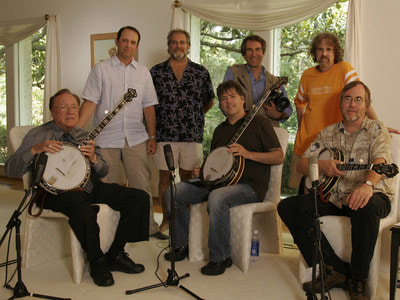BOSTON, Dec. 19, 2018 /PRNewswire/ -- Emerson College announces the creation and launch of a first-of-its-kind digital museum devoted to the banjo – an instrument that uniquely reflects America's complicated and contested social history. The Banjo Project, set to launch in June 2019, was created by Associate Professor Marc Fields, and produced by Fields and Assistant Professor Shaun Clarke. Fields is a Visual & Media Arts Professor and Emmy-Award winning writer/director/producer for PBS, most recently for the documentary Give Me the Banjo. The digital museum, built on a searchable archive of over 300 hours of original media, archival footage, stills and recordings, will serve as a public, online cultural resource devoted to the instrument's colorful and complicated history.
The digital museum, in beta form at banjo.emerson.edu, is supported by a $100,000 National Endowment for the Humanities grant, which is the largest NEH grant received in the college's history. The award is part of $14.8 million in grants announced on December 12 by NEH for 253 humanities projects nationwide.
"The banjo has symbolized patriotism and protest, pain and pleasure, low entertainment and sophisticated leisure. It's been a black instrument, a white instrument, a laborer's pastime and a socialite's diversion, a young person's fad and an old-timer's friend. But mostly it's been a snubbed instrument," said Fields, who aims to showcase the banjo's rich and diverse music and players in their historical context.
Brought to the Americas by enslaved Africans, the banjo is the product of three centuries of cultural exchanges, appropriations and interactions and has shaped many American and transnational musical forms including the minstrel show, ragtime and early jazz, folk, blues, bluegrass, country, and world music. The instrument's complex history also resonates with current social issues and struggles in our society.
"The Banjo Project highlights many of the issues at the heart of American society today, including lingering conflicts around race, class, gender, regionalism and the collisions between folk and pop music," Fields said.
The Banjo Project combines interactive documentary, up-to-date research, curated, professionally produced content and rare archival footage and recordings and serves as a hub for partner institutions, scholars and collectors. The digital museum, developed over 15 years, is a public resource allowing users to discover the stories about America's instrument.

 RSS Feed
RSS Feed
